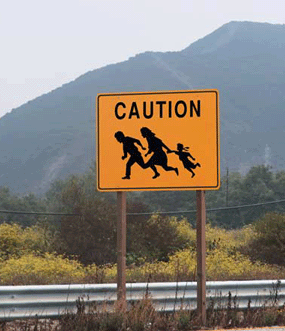As the immigration debate again takes center stage in Washington, we look back to 2007 when Tim Padgett of Time magazine reported from Mexico on the economic factors that drive so many if its citizens to the United States. "Most Americans still fail to grasp that immigration reform is not domestic policy," Padgett wrote presciently, "it’s foreign policy."
Approaching it as the former has led us to one failed immigration scheme after another. I started my career in the 1980s covering the Reagan administration’s sweeping amnesty for undocumented immigrants and its crackdown on employers who hired them. That was followed in the 1990s by the Illegal Immigration Reform and Immigrant Responsibility Act, intended to “seal” the frontier with fences and thousands of new border patrol agents. Result: by 2000, the number of migrants entering the U.S. illegally had actually risen to a record of almost two million a year.
By then the message should have been clear: instead of trying to curb illegal immigration at the border, we should try reducing it at its source inside Mexico and Latin America, the region with the world’s widest income disparities. As long as so many millions south of our porous border live in grinding poverty (and as long as the world north of the border remains addicted to cheap fruit-picking, dish-washing and room-cleaning), illegal immigrants will keep coming. But if we could work with countries like Mexico to steer more of their wealth and ours to the impoverished by means of better jobs, education and entrepreneurial opportunities—if we were to steer billions to those efforts instead of fences—we might not need the fences.








